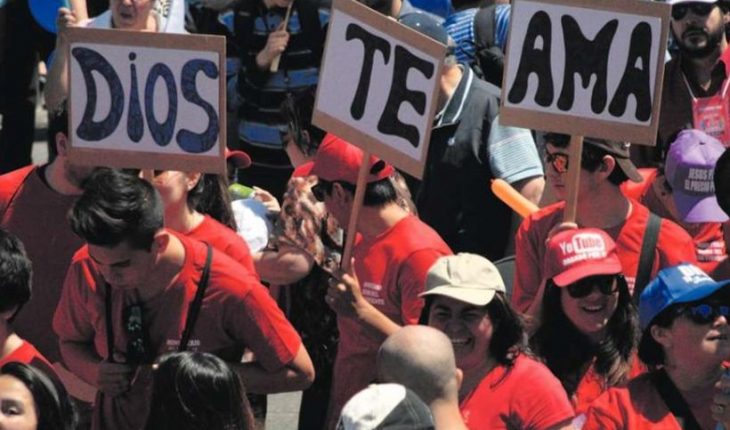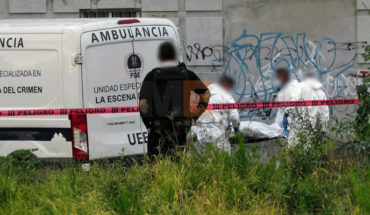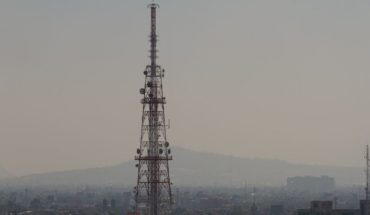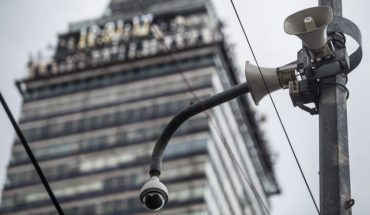Ad portas de la Moneda study the possible disconfunding of some of the 65 communes in the country that remain quarantined, analysis to be made on Sunday, in the Government have strengthened the work to prepare the city for a de-escalation where some normality is resumed with the Covid-19 still present.
First it was the Ministry of Health that published an instruction with tips for taking to the streets still in the pandemic, to which yesterday was added the Transport portfolio, which presented a plan with road measures and recommendations to rethink public space and prevent further contagion after the reopening.
Minister Gloria Hutt explained that the scheme was thought for months using experiences from other countries that are further advanced in the health crisis. This came to the idea that two areas should be prioritized: increasing public space to avoid crowds and providing assurances to people who will come out in fear of confinement.
“We need to free up space and here we enter into the use of cities in a different way. We will see unusual things,” the authority, who handed over a series of proposals to the municipalities to redesign the city.
Among the examples raised was the possibility of closing streets to traffic so that religious activities or community meetings (such as neighbouring boards) are carried out in the process without having to gather these people in enclosed spaces. It was also proposed that the streets can be used for classes.
“There are places where streets in front of schools have been activated as gym supplements, so that physical activities can be done in open spaces with much more protection for children,” Hutt said. He also considered that the courses could divide his students, giving the classes one part inside the classroom and the other half outside the enclosure.
But it is not the only change that is discussed in the matter. Together with the Ministry of Education, it is also thought to instruct that no university should have classes before 10:00 when face-to-face courses return. This as a way to reduce passengers in rush hour, as 15% of trips are for higher education students.
The proposals will be implemented as the communes progress in the stages of the “Step by Step” plan, although their managers expect that they will all already be in operation when the greater decon confinement phase is reached. For now, the Catholic University has already announced that it will not take up face-to-face classes this year, and several communes have said the same about their schools.
Other proposals that are used in Transport is that work meetings are held in squares or open spaces, and that the fairs move to avenues where they can guarantee greater separation between stalls and give more space for customers.
“During this transition, and until we have a vaccine, the public space is going to have a completely different format,” Minister Hutt emphasized.
Road changesJunct to proposals, the portfolio announced 222 measures that will be implemented in the country to improve mobility during the de-escalating process.
Initiatives include rescheduling traffic lights to reduce pedestrian waiting times and prevent them from crowding corners, as well as empowering “Tokyo-type” crossings, which are those where every certain time frame all car traffic lights turn red, allowing pedestrians to cross in any direction.
The package also includes 74 kilometers of roads that will be converted into pedestrian zones to enhance the estrangement of passers-by, and 180 kilometers of temporary cycleways in order to promote this means of transport in deconfining.
To size it, the extension of the new sidewalks is equivalent to the distance between Santiago and San Felipe, while the cycleways could unite the capital with Curicó.
For public transport, 37 new Solo Bus tracks were promised on the RM, covering 109 kilometres and speeding up the movement of the buses, thus shortening the travel times in peak hours by 20%.
The new tracks would be ready in 3 to 4 weeks and will be located in the communes of Estación Central, Huechuraba, Independencia, La Granja, La Reina, Las Condes, Maipú, Uñoa, Providencia, Pudahuel, Puente Alto, Quinta Normal, Recoleta, Renca, San Miguel, Santiago and Vitacura.
In total there will be 51 measures to be applied to the MRI, including a network of sensors to measure mobility. At the country level the program envisages an investment of $2.5 billion and also encompasses strengthening the sanitization of transpo’s mediartes.
Franco Basso, transport expert at the PUC in Valparaiso, commented that the plan “misses” measures to increase buses and limit passenger capacity. “On a bus shouldn’t go more than 25 people, and in a car (from Metro) to the most 40 people,” he said.
translated from Spanish: Transportes proposes to hold classes and religious events on the street when confinements are completed
July 25, 2020 |





